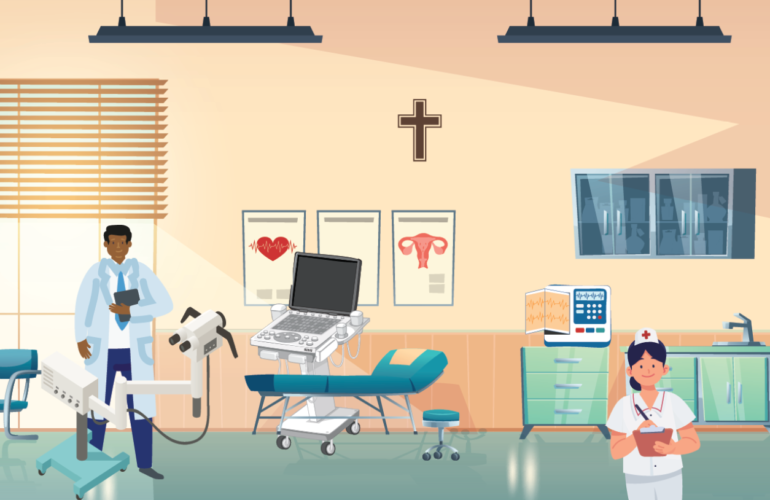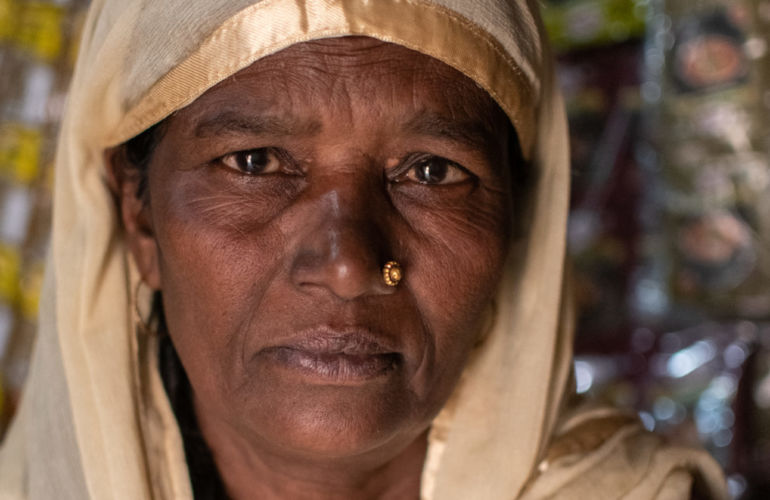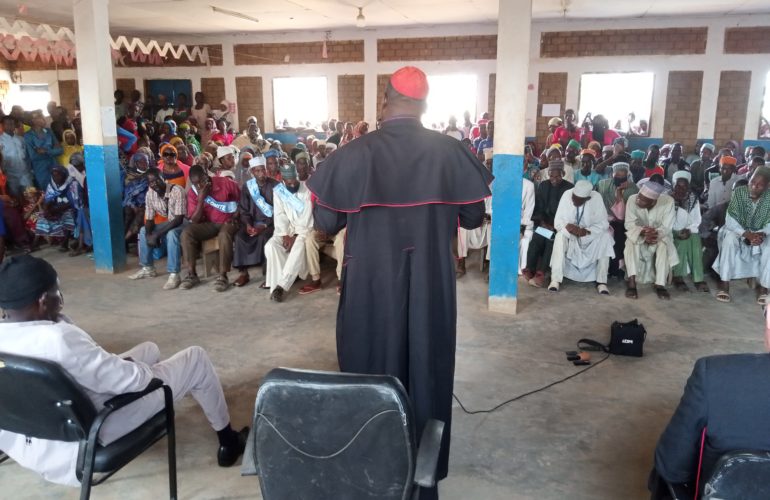Listening to Refugee and Migrant Women
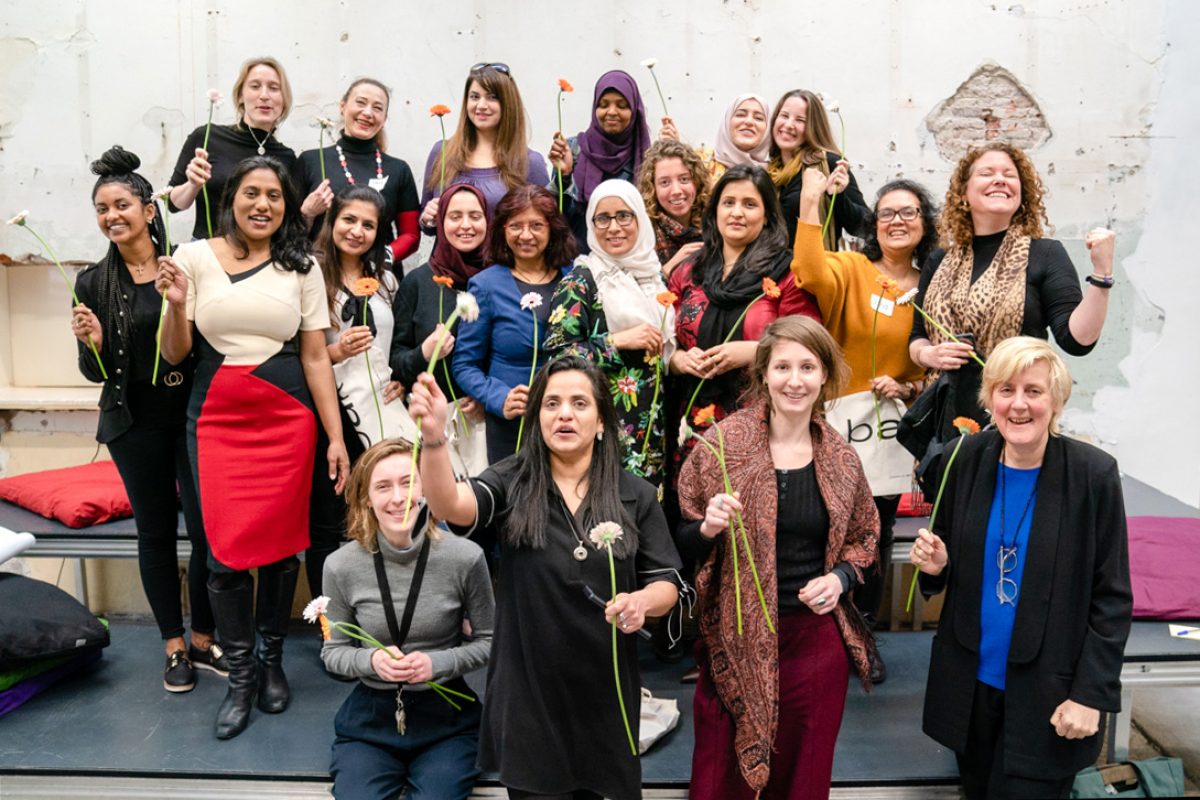
What do migrant and refugee women truly want? This is what Anila Noor set to find out. Through her initiative, New Women Connectors, she brings together refugee and migrant women in the Netherlands to discuss the issues that affect their lives. Woman to woman. Unfiltered.
Noor, originally from Pakistan, has been living in the Netherlands since 2013. She arrived as a student for a Masters in Human Rights, Gender and Conflict Studies at the University of Rotterdam, but when circumstances changed in her country of origin, she was forced to apply for asylum in 2015. The difference between life as a student and as a refugee has been remarkable. This prompted her to become an activist for refugee and migrant women.
We met Anila Noor at the SHARE Conference in Brussels in October 2019 and talked with her about the challenges faced by refugee and migrant women, and how to overcome them.
[ICMC] How did you become an activist for refugee women?
[Anila Noor] I came to Europe to study and as long as I was a student, everything was fine. Then, circumstances changed back home and I became a refugee – not a luxury, let me tell you. From the moment I started being identified as one, everything changed.
Suddenly, it seemed like all my capacities and skills – everything that I had as a student – disappeared. Suddenly, there was this perception that as a refugee, I was incapable of doing anything.
And there was this strong pressure to enter the job market. So after graduating, I went to work in a factory. I lasted only one month. It was very hard. I didn’t want to be there and it felt like I was being ripped-off. It wasn’t what I had studied and worked so hard for.
So I quit and decided to do something that was more in line with who I am. That same year, I became a policy adviser for the city of Amsterdam.
This job made me realize that there was something missing in the world of policy-making, especially from the point of view of women. And the experience of having to go to work in a factory, feeling in my own body what it means to be put down because I’m a ‘refugee’, also contributed to my decision to create New Women Connectors.
What is New Women Connectors?
As a woman, I felt that there was a huge gap in how women’s voices, and especially refugee and migrant women’s voices, are listened to, and heard. So that’s why I decided to create New Women Connectors, a self-advocacy initiative for refugee and migrant women. It is a way to bring together women, migrant and refugee women to discuss the real issues that affect our lives, not the issues that policy-makers believe affect us.
You see, I am myself a woman, a refugee, brown, the daughter of a refugee and a Muslim. All these identities are in me and make my reality more complex. I cannot simply identify with being only a refugee because I am all those other things as well. And I feel that policies do not take this into account; they are created with one ‘category’ in mind. But each of us lives across many ‘categories’.
What are some of the issues you discuss?
We discuss everything that affects our lives from our own perspective. For example, we might discuss why we don’t feel integrated, the racism we experience when we wear a religious symbol, education and about how we can be socially and economically integrated…
And we don’t use policy jargon but the language we all use in real life. We also focus on solutions and prepare policy recommendations. The next step will be to present these recommendations to policy-makers. I plan to do that in Brussels, soon. I want policy-makers to really listen to what women have to say. There shouldn’t be a third person speaking for migrant women. They should be able to speak by and for themselves.
The problems faced by migrant or refugee women are similar, but are even more challenging for women migrants because there are less programs and opportunities. And for diaspora women, it’s even worse; society expects so much, but there is barely any support offered to them.
The issues women face are not caused by the fact that they have come from a far-away land, but because the system in the new country is not helping them, is not tailored to their needs. So we need to fix the system, not the women.
Women do not need empowerment, women already hold the power within themselves. What they need, what we need, is someone to listen to what we’re saying and to understand why we’re saying it.
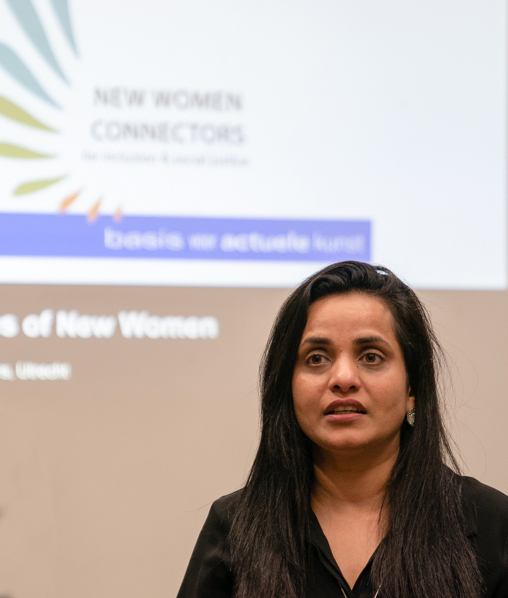
Can you share an example of what you mean here?
Absolutely. Not so long ago, I was invited to an evening get-together in Amsterdam. There were lots of executives at this high-level event. The food was prepared by a refugee, who introduced herself and told her story. She had been a marketing manager in Syria for more than 12 years, then had to leave the country, came to the Netherlands and became a cook. Everyone clapped and congratulated her.
Can you see what’s wrong with this scenario?
No one focused on the fact that she was a marketing manager. For 12 years. She was obliged to become a cook because that was an easy option that was appreciated in the Netherlands. Cities need migrants and refugees, but they are offering too little: it is either low-paid jobs or nothing. There is barely any time to adapt to your new life; the pressure to get on your feet is so strong that people will do anything. But you know, we can do much more than just cooking food.
I feel very hopeful when I am with my platform, New Women Connectors. I am amazed when I meet the different groups of women – they are so strong, so resilient. They are doing so much for their families and their communities. They are not only bringing their own culture and language with them but also adapting to the new language and culture.
But again, when they go home they are the ones who will cook for the entire family. And there is no recognition of what this means for them. There is no real debate about what type of support women need, people are just pushed into the labor market. And because there is this pressure to work, work, work, people are willing to take any jobs.
What are some of the issues you are planning to work on in the near future?
A very important issue is the need to change views of migrants and refugees. Since 2015, we have seen a media panic and a ‘crisis’ narrative. It is getting worse and more complex. Instead of saying, “Oh, these poor people are coming here, we should help them,” we should be saying, “This is normal, people have always been migrating. Those who come here are just people.” Instead, refugees and migrants are blamed for everything that goes wrong in society.
And then, honestly, it’s enough with this thing of asking refugees and migrants to cook. I mean, OK, the food is delicious, but is there nothing else people can do? There should be programs which support development, not just quick-fix solutions. A few weeks ago, a crew entirely made up of women went into space. Why did that happen? Maybe because their mothers were exposed to something other than cooking. We need to give migrants and refugees a wider range of exposure.
Another point is to focus on the long-term impact. If the policies are not based on the real issues, they will fail. That is why there are problems with second- and third-generation migrants. Women especially are left alone and are unaware of the opportunities that exist and how to access them. And that of course is passed on to their families, so it’s no wonder that there are difficulties with people who have been in Europe for generations already. We need a much stronger gender lens on policies, especially migration policies.
You see these cases of migrant women who only stay at home. The assumption is that this is what they want to do, but have we asked them? What if they would like some educational opportunities? Are we sure that they have all the information they need? That is what I hope to do with New Women Connectors. I want to ask women what they want and need. Only when we have a good understanding of that can we really create policies that are grounded in reality and will have a chance of success.
The SHARE Integration Network provides a platform for exchange and learning amongst local and regional actors working on or considering refugee resettlement. It advocates for more and better refugee resettlement opportunities and other complementary admission pathways in Europe. The network was established in March 2012 and is led by ICMC Europe.
